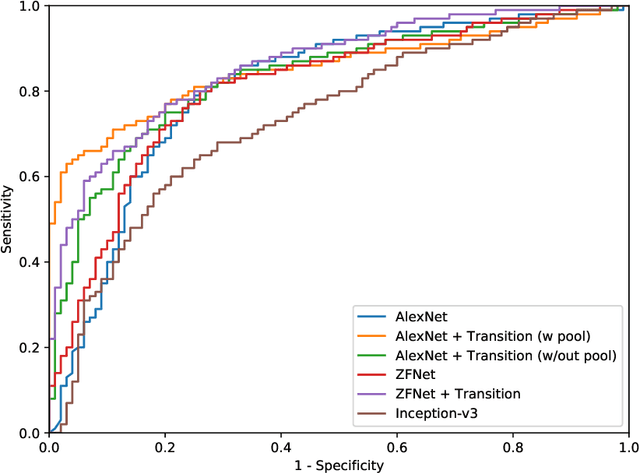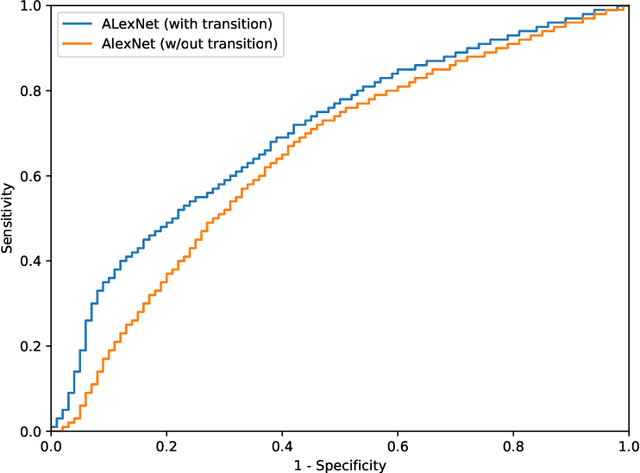Shazia Akbar
Cluster-Based Learning from Weakly Labeled Bags in Digital Pathology
Nov 28, 2018



Abstract:To alleviate the burden of gathering detailed expert annotations when training deep neural networks, we propose a weakly supervised learning approach to recognize metastases in microscopic images of breast lymph nodes. We describe an alternative training loss which clusters weakly labeled bags in latent space to inform relevance of patch-instances during training of a convolutional neural network. We evaluate our method on the Camelyon dataset which contains high-resolution digital slides of breast lymph nodes, where labels are provided at the image-level and only subsets of patches are made available during training.
Transitioning between Convolutional and Fully Connected Layers in Neural Networks
Jul 18, 2017



Abstract:Digital pathology has advanced substantially over the last decade however tumor localization continues to be a challenging problem due to highly complex patterns and textures in the underlying tissue bed. The use of convolutional neural networks (CNNs) to analyze such complex images has been well adopted in digital pathology. However in recent years, the architecture of CNNs have altered with the introduction of inception modules which have shown great promise for classification tasks. In this paper, we propose a modified "transition" module which learns global average pooling layers from filters of varying sizes to encourage class-specific filters at multiple spatial resolutions. We demonstrate the performance of the transition module in AlexNet and ZFNet, for classifying breast tumors in two independent datasets of scanned histology sections, of which the transition module was superior.
 Add to Chrome
Add to Chrome Add to Firefox
Add to Firefox Add to Edge
Add to Edge